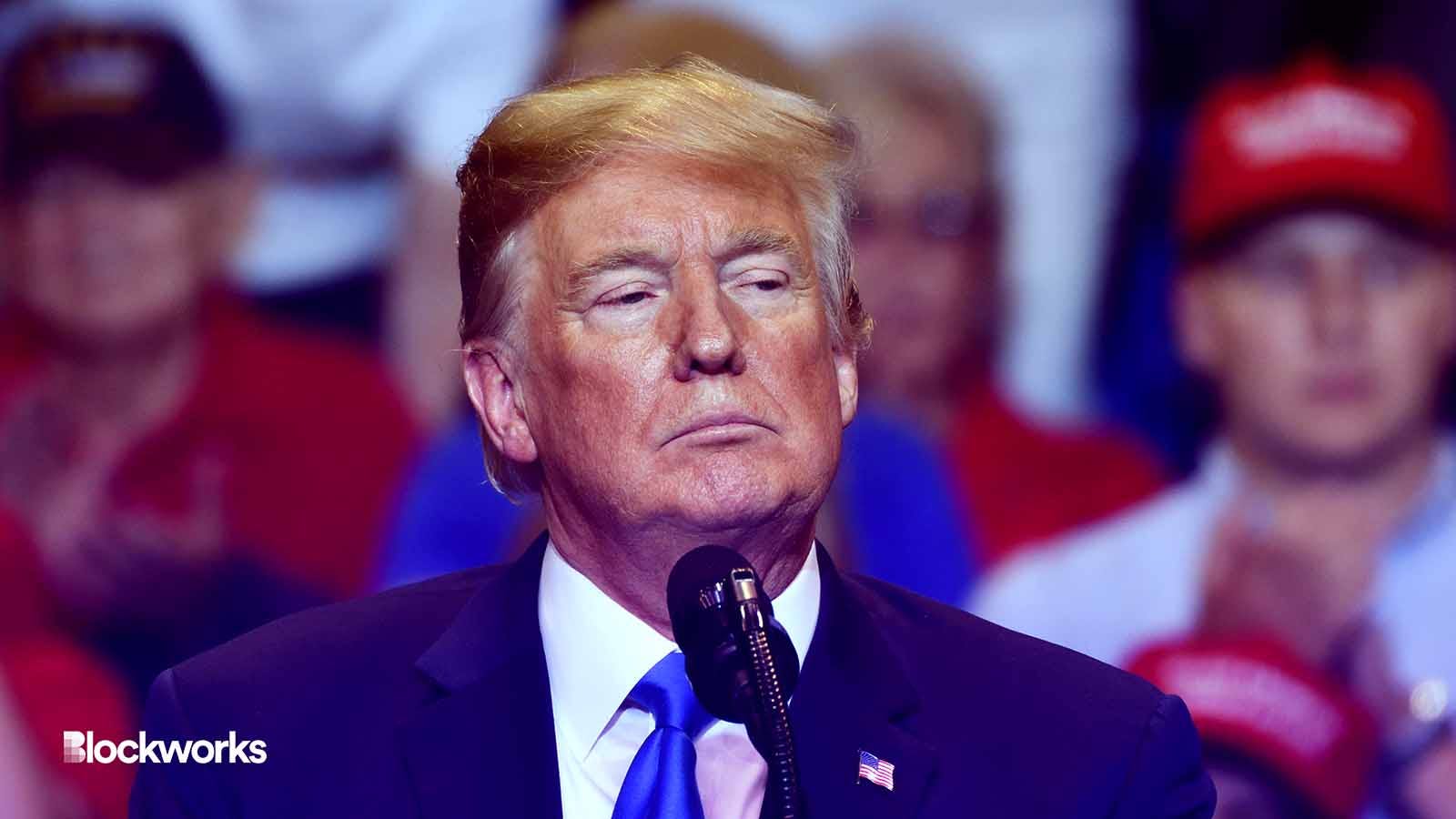Here’s What US Presidential Hopefuls Are Saying About Crypto
To date, there are nine US presidential candidates in a three-to-six split between Democrats and Republicans, and only a handful have shown interest in crypto regulation

Evan El-Amin/Shutterstock modified by Blockworks
As the US 2024 presidential election slowly advances, several candidates are turning to the crypto industry in a bid to pick up additional votes ahead of next year’s race.
Nine candidates have so far filed with the Federal Election Commission to run for office, with three Democrats to the Republicans’ six, according to data from Ballotpedia.
Kennedy Jr.
Democratic candidate Robert Kennedy Jr. announced last week he would make his first appearance as a presidential hopeful at the Bitcoin Conference in Miami later this month.
The nephew of former President John F. Kennedy has labeled crypto, including bitcoin, a “major innovation engine,” according to a tweet thread last week. The environmental activist, lawyer and author first announced his bid on April 5.
“It is a mistake for the US government to hobble the industry and drive innovation elsewhere. Biden’s proposed 30% tax on cryptocurrency mining is a bad idea,” he tweeted.
Biden and Williamson
The two other Democratic candidates include incumbent President Joe Biden — who announced his re-election bid late last month — as well as 2020 presidential candidate Marianne Williamson.
Following his executive order in March of last year, President Biden believes the US has a chance to “reinforce American leadership in the global financial system” while recognizing the need for regulatory guardrails to protect consumers in crypto.
On paper, Biden’s order instructs multiple government agencies, including the Federal Reserve, to investigate the potential dangers and benefits crypto presents.
In practice, the order also opens the door for the exploration of a centralized digital dollar, to which some presidential candidates are vehemently opposed, namely Kennedy Jr.
Read more: FedNow Will Save the US From a CBDC
Williamson, a lecturer and author of more than a dozen books, has been less vocal on the emergence of digital assets.
Last year, she tweeted “Canada, are you okay…?” in response to a video posted by local media True North outlining a statement from Deputy Prime Minister Chrystia Freeland.
In the video, Freeland discusses actions taken by the Royal Canadian Mounted Police to freeze accounts associated with individual entities and crypto wallets suspected of illicit activities.
While Williamson’s reaction could indicate some opposition to Canada’s decision to freeze crypto wallets, her take is more likely associated with what some have called an oppressive approach to anti-vaccine activists.
Williamson’s office did not immediately respond to Blockworks’ request for comment.
Haley, Elder, Hutchinson, Ramaswamy, Stapleton
Larry Elder, a conservative talk radio host who announced his candidacy on April 20, has not made any public statements regarding digital assets to date. Candidate Nikki Haley, former United Nations ambassador and South Carolina governor, has not provided any public statement on digital assets either.
Asa Hutchinson, Arkansas’s former governor who announced his bid on April 2, and Corey Stapleton, former Montana secretary of state, have also not provided any definitive policy, or public statements on the nascent asset class.
Blockworks attempted to contact Elder, Haley, Stapleton and Hutchinson, but has so far received no response.
In February, Vivek Ramaswamy, an entrepreneur and political commentator, also announced his campaign. Ramaswamy’s platform includes advocating for free speech, minimizing the federal government’s scope, challenging China, rejecting affirmative action policies, and opposing environmental, social and corporate governance initiatives.
Ramaswamy tweeted in March “Every GOP candidate needs a clear answer to CBDCs: hell no.”
Trump
Former US President Donald Trump announced his candidacy for a second attempt at a second term as president on Nov. 15, 2022. Trump previously tweeted he is “not a fan” of bitcoin and crypto, going so far as to dismiss their value as highly volatile and “based on thin air.”
“Unregulated Crypto Assets can facilitate unlawful behavior, including drug trade and other illegal activity,” he tweeted in July 2019.
“We have only one real currency in the USA, and it is stronger than ever, both dependable and reliable. It is by far the most dominant currency anywhere in the World, and it will always stay that way. It is called the United States Dollar!”
Trump’s campaign media department did not immediately return Blockworks’ request for comment.
Get the news in your inbox. Explore Blockworks newsletters:
- The Breakdown: Decoding crypto and the markets. Daily.
- 0xResearch: Alpha in your inbox. Think like an analyst.






